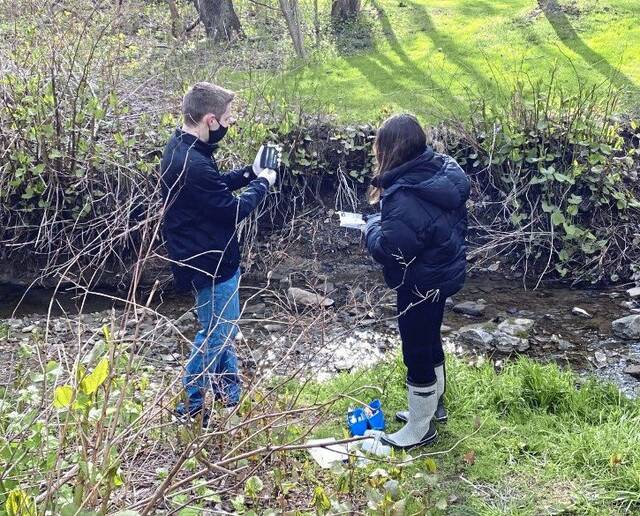This year, about 50 million students will attend primary and secondary school in the United States. Every morning, as I and millions of others struggle to get out of bed, asking ourselves whether it’s really necessary to wake up this early, it’s evident that we have no other choice.
School is the only thing we all have in common. It’s the place where we learn fascinating subjects, meet new people and, most importantly, prepare ourselves with skills and habits we hope to use for the rest of our lives.
If school plays such a significant role in our childhood, for me and millions of others, shouldn’t our government, which mandates our education, be trying its best to teach us what we need to become better citizens?
If the answer is yes, what does it mean to be a “better citizen?” I’m sure there are many criteria, but for me and a growing number of people, being environmentally literate is one of them.
According to a survey done by NPR and IPSOS in 2019, 78% of Americans support schools teaching climate change. The study polled 1,007 people of various groups and calibrated respondent characteristics to be representative of the U.S. population. Even if we may look at the study with a bit of caution, the overall message is loud and clear: A majority of Americans want climate change and its effects to be taught at school.
Future generations are the ones who will face severe climate-related problems, and if schools don’t teach it properly now, there will be a significant learning disparity in the future when such problems become more apparent.
While talking with Pittsburgh Mayor Ed Gainey about environmental education, I learned that the people most affected by environmental hazards are also the least educated about it, and implementing educational measures to combat this problem would benefit many.
In a world where environmental topics create so much controversy, wouldn’t an educated generation help ease the chaos while empowering those threatened by environment-related hazards? Yes, but it depends on how it’s done.
Many people believe environmental education can be too extreme. Some schools teach children pessimistic views about their interactions with the environment. The notion that “we must act now” creates more panic than learning. Many parents, particularly those working in fields that contribute to global emissions, are concerned about this environmentalist bias. Others believe that our environmental interactions are normal and should be of no worry.
The challenge to teach students about the environment has become more significant than ever before. Our goal shouldn’t be to scare them, but rather to help them understand a need for improvement.
To do this, students need to have a deep understanding of their ecological footprint and its meaning. Teaching concepts such as reducing, reusing, recycling, decreasing the use of single-use plastics and the impact food has on global emissions will allow them to decide what they can do to be more environmentally friendly.
When it comes to controversial topics, it is crucial to allow students to develop their own perspectives. Take fracking, for example. Instead of starting with the negative aspects, the subject should be introduced by talking about how almost all of us depend on it to heat our homes, generate electricity and power our vehicles. Then, the discussion can transition to why fracking cannot be a long-term solution to sustainable energy production.
Suppose that one day we can provide students with multiple perspectives, facts and justifications to understand our environmental interactions. Then, what merit will those who advocate against environmental education have in making their claims? If we want to achieve this goal, we need to start sowing the seeds now.
In 2020, New Jersey became the first state to mandate climate change education for K-12 students. As Pennsylvania and other states develop their courses of action, I hope they work thoroughly to create an environmental education curriculum that works — one that is built on fact, not opinion. Only then will we have succeeded in producing a generation ready to face the problems that are yet to come.
Vidhur Senthil has been working for several years on improving environmental education standards at Upper St. Clair High School, where he is a senior. He also is working with Pittsburgh Mayor Ed Gainey on environmental education-related objectives.








